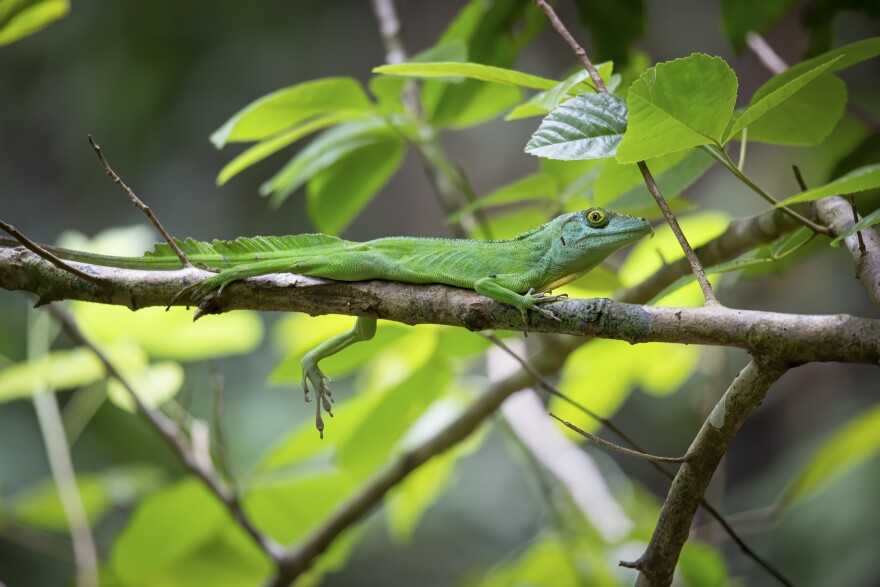Lizards are always teaching Aryeh Miller something new, even though the biologist has studied them for six years.
As an ecologically, morphologically and evolutionarily diverse group, they help, he explained on St. Louis on the Air.
Miller is currently a graduate student in the Evolution, Ecology, and Population Biology program at Washington University. He is also the lead author on a study, recently published in Oxford’s science journal, , about how lizard species with sticky toe pads have an evolutionary advantage over their padless counterparts.
“If you take a look at one of these lizards, and use a very powerful microscope and zoomed in, you would see a forest of micrometer-wide hairs that allow lizards to adhere to virtually any surface,” Miller explained.

He said lizards without the hairy toepads transition to life on the ground at a far higher rate than a lizard with toepads. He added that one of the major paradigms of this study is understanding how these key traits evolved in the first place.
“These toepads evolve adaptively,” he said. “[The lizards] get into trees and then they [develop] the toepads, as opposed to evolving them on the ground or in some other habitat, and then going up into trees and living up there.”
Here’s why toepads are key for life in the trees, said Miller:
“When [lizards] have long, sharp claws, it's really hard to cling on to these slippery branches and leaves. Now we've noticed, over decades of studies, that lizards with toepads can cling on to the slippery leaves really well, which really gives them this biological superpower to live in areas where lizards that have these long, sharp claws simply cannot.”
But this so-called biological superpower might be cause for concern as climate change continues to pose a threat for various species.
“If you have these toe pads, and you have rapid climate change for whatever reason, it could be dangerous to only be able to live in trees,” he said. “Whereas these lizards that have more lability and ability to go in between trees in the ground, they might have an advantage and be able to adapt at a higher rate than lizards that are committed to life in the trees. So this is very interesting for studying climate change and extinction biology.”
Miller’s colleague, Washington University biologist and postdoctoral research associate James Stroud, co-authored the paper.
“” brings you the stories of St. Louis and the people who live, work and create in our region. The show is hosted by and produced by , , and . The audio engineer is .



